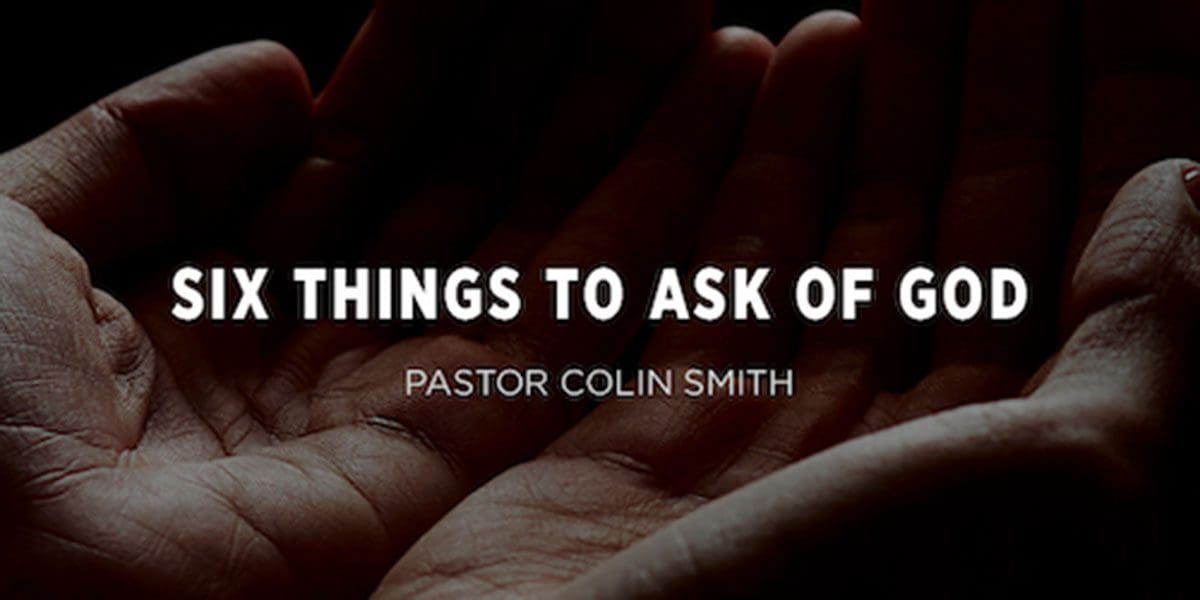Have no fear of them, nor be troubled, but in your hearts honor Christ the Lord.
(1 Peter 3:14-15)
I am doing today something that we rarely do, and that is to change the message from what had been planned. God willing, we will look at the story of the wise men and the witness they bore to Christ the King next week. But today I want to bring a message that I hope will help us to respond to the atrocity in San Bernardino, and to other events that press in on our minds and hearts in these difficult and dangerous days.
Karen and I appreciate the news analysis of Mark Shields and David Brooks on the PBS News hour on Fridays. They spoke this week about the ‘real fear’ that is in the country following the events in Paris and now in California. Other shootings, they said, led to great grief and sympathy across the country, but this is different. In addition to these, it has led to fear.
I think their analysis is exactly right, and in the hours that followed on Friday evening my mind kept returning to the theme of how a Christian responds to fear. Somewhere around midnight I came to the conclusion that this is the area in which we most need to seek the help of God through the Scriptures today.
Fear of Violence and Persecution
So I want to speak today about the issue of fear and I invite you to turn with me to 1 Peter 3:14 where we read these words: “Have no fear of them, nor be troubled.” Peter is writing to believers who are in the shadow of Nero’s horrible persecution of first-century Christians.
These believers had not yet experienced it, but all of them faced the prospect of trials and even persecution: “Do not be surprised at the fiery trial when it comes upon you to test you, as though something strange were happening to you” (1 Pet. 4:12).
Some of us are afraid that our freedoms are being eroded and that our children may not enjoy the blessings that have been given to us. Many of us are deeply burdened for loved ones who do not honor Christ. We see them making bad choices, we are afraid of where it will lead, and where it will end.
Often the fear of what lies ahead is harder to bear than the reality when it comes: What will I do if…? How will I cope when…? The Bible talks about “the valley of the shadow of death” (Ps. 23:4). What is that? The shadow can sometimes be worse than the reality. A person who is seriously ill has often said to me, “Pastor, it’s not dying that scares me, it is the whole process of everything that leads up to it.”
So, these Christians were in the most difficult position of all. They are facing the fear of violence, the fear of persecution, and the fear of loved ones being lost. Peter, who is their pastor and shepherd, is writing to help them face their fears.
This theme is at the heart of the Christmas message. When the angel appears at the birth of Christ, what are his first words? “Fear not… I bring you good news of great joy” (Luke 2:10). Why did Jesus come into the world? What is the incarnation all about? There are many answers in the New Testament, but the book of Hebrews gives us this one:
Since therefore the children share in flesh and blood, he himself likewise partook of the same things, that through death he might destroy the one who has the power of death, that is, the devil, and deliver all those who through fear of death were subject to lifelong slavery. (Heb. 2:14-15)
That describes our situation in America today. There is a real fear, and according to Shields and Brooks, it is sweeping across the country. What is going to happen next? What if I get caught in a terrorist attack?
My most vivid memory of the Sunday after 9/11 is of a woman who spoke to me after the service. I had never seen her before. I have not seen her since. She came up to me after the service and asked, “How can I tell my children that they are safe?”
I said to her as gently as I knew how, “You can’t. Our calling as parents is to equip our children to live in a dangerous world, and to do that they need to have an authentic faith in Jesus Christ. And so do you.”
Jesus Christ came into the world precisely for this reason: That we should be delivered from living our whole lives in chronic and enslaving fear of the latest danger to stalk our world.
Distinctive Testimony
This should be the area of our most distinctive testimony. There is a real fear in the country. People are afraid, and God says to us, “Do not fear what they fear” (Isa. 8:12). Peter is quoting directly from Isaiah.
To Christians living in the brutal world of the Roman Empire, Peter says, “Always be prepared to give a reason for the hope that you have” (1 Pet. 3:15 NIV). People were looking at the persecution Christians were facing and saying to them, “You ought to be really afraid,” but they weren’t. They were filled with hope. The early Christians were people of hope living in a culture of fear. There is something powerfully attractive about that
We live in a culture where many have rejected our message. But they too are concerned for their children. They too wonder what the future holds. And if, around the country, there are communities of believers who are marked more by hope than by fear, many may be drawn to think again about the message that they have rejected. What is the reason for the hope that is in you when there is a real fear in everyone else?
Sometimes it seems that there is as much fear in the church as there is in the world. So I want to pose two questions today: 1. Why is it that there are so many fearful Christians? 2. How can we as Christians overcome our fears?
Many of us would say, “Have no fear of them? That’s great that that’s in the Bible, but I’m not there.” Well, why are we not there? How can we get there?
Q: Why are there so many fearful Christians?
A: Because the self-exalting spirit of the world has so widely permeated the church.
A Christian is a person who submits his or her whole life to the lordship of Jesus Christ. This is the polar opposite of the great movements of our time, both within our own culture and around the world.
What are the great things in the Bible that God does with regard to humanity?
- God brings about the beginning of life.
- God makes us male and female.
- God tells us what marriage is.
- God determines the timing our death.
Now think about the great social issues that are at the center of so much controversy in our time. One thing ties them together. We have been the assuming for ourselves the right to do the things that belong to God.
We want to determine the beginning of life: Which children should come to birth and which should not see the light of day. We want to make gender a matter of personal choice. We want to define what marriage is and who it is for. And with the same frame of mind, we want the ‘right’ to determine the time and circumstances of our own death.
The same impulse is at work in each of these cases. We are putting ourselves in the place of God. We want to remove him from the throne, and we want to occupy the place of supreme authority over all things ourselves. We have welcomed and embraced the satanic proposal first put forth in the Garden of Eden: “You shall be as God.” Precisely the same problem lies at the root of the violent terrorism that is causing so much fear around the world today.
Think about who God is: God is the judge, and judgment belongs to him. He is the One who, on the last day, will bring the immoral and the unbelieving to judgment. But now we have people who see it as their job to bring justice and judgment to ‘the infidels.’ What we have in the jihadists is just another example of man putting himself in the place of God.
What is the Christian response to a world in which men and women are increasingly putting ourselves in the place of God? The first thing to say is that the cultural Christianity that pervades our country can offer no response whatsoever. Why?
Because many of us have been raised with and shaped by a diminished gospel that says, “God loves you and all you have to do is say ‘yes’ to him and you will be safe, secure, and blessed forever.” So people say “yes” to God and then spend the rest of their lives in some degree of irritation or resentment that this God, to whom they have said “yes,” has not made their lives as they would want them to be.
Do you see what has happened: What is wrong with this picture? What is actually going on?
We see ourselves as the ones on the throne and God as the one who exists to serve us by making our lives as we want them to be. That is why I say that the church has, in large measure, been permeated by the same self-exalting spirit that is at the root of the landslide in our culture, and of the terrorism that is causing so much fear in our world.
The first word of the gospel is that there is a sovereign Lord who lays claim to the whole of your life. The second word is that you are a sinner who deserves nothing but judgment from God. The third word is that he has sent his Son Jesus Christ into the world as the Savior, who alone is able to bring peace and reconciliation between you and God. The fourth word is that this Savior can be yours, as you turn to him in faith and in repentance.
Q: How can Christians overcome our fears?
A: In your hearts, honor Christ the Lord.
Have no fear of them, nor be troubled, but in your hearts honor Christ the Lord.
(1 Pet. 3:14-15)
Peter is telling us how we can overcome our fears. If you are the lord, everything that you cannot control will cause you to fear. What if there is a bomb? What if one of my children choose the wrong path? What if I get cancer?
But when Christ is the Lord of your life, you have reason for confidence. Your Savior is Lord! Jesus Christ was sovereign over your birth. He is sovereign over your life, and he will be sovereign over your death.
Sovereign over your birth means that of all the millions of people who could potentially have come from the union of your father and your mother, God created you! In great love and mercy, he planned that you should be for all eternity!
Sovereign over your life means all that has a happened to you, the good you have enjoyed and the evil you have suffered, was known to God before the beginning of time. Life is full of surprises for us, unexpected twists and turns, but nothing ever comes as a surprise to him. Before a word is on my tongue God knows it completely.
God’s sovereignty over your life means that God works through all that has happened in your past and whatever will happen in the future to advance the great purpose for which he brought you into being. This is what the apostle Paul is talking about when he says, “For those who love God all things work together for good” (Rom. 8:28). God’s good purpose is that a reflection of his dearly loved Son will radiate from you for his glory and for your joy forever.
Sovereign over your death means Jesus Christ is in complete control of the timing, the circumstances, and the outcome of your death, which for a Christian believer, whenever it comes, will be an immediate translation into glory. “In your book were written… the days that were formed for me” (Ps. 139:16; cf Job 14:5).
George Whitfield said, “We are immortal till our life’s work is done.” You can’t use that as an excuse for irresponsible behavior – driving down the wrong side of the road at 90 mph. That is an abuse of the truth. Satan tried that abuse when he suggested to Jesus that he should jump from the pinnacle of the temple, “Nothing bad will happen!”
Jesus said, “You shall not tempt the Lord your God.”
Instead, use this truth when you struggle with fear. If you are afraid of flying on an airplane, this is a great thing to say to yourself as you put on your seatbelt while they go through the pre-flight routine: “I am immortal until my life’s work is done.”
The freedom from fear that a believer under the Lordship of Christ enjoys is beautifully expressed in the Heidelberg catechism:
Q: What is your only comfort in life and in death?
A: That I am not my own, but belong – body and soul, in life and in death to my faithful Savior, Jesus Christ… He also watches over me in such a way that not a hair can fall from my head without the will of my Father in heaven.
What This Looks Like in Practice
To honor Christ the Lord means that you hold all that you have in this life with an open hand. It means that you will use the word ‘my’ tentatively, as if it were in parentheses.
- ‘My’ house, means the house that God has entrusted to me for a time.
- ‘My’ children means the loved ones who belong to God and are lent to me for a time.
- ‘My’ work means the service that God has called me to do for a time.
- ‘My’ money is the resource that God has trusted me to steward on his behalf.
- ‘My’ friends are the people God has given as companions for a few laps of the journey.
- ‘My’ life means the opportunity that God has given me to serve at his pleasure in this world until he calls me home.
I can talk like this because I’m not the one who is on the throne. Thank God for that! Otherwise, I’d be riddled with fear.
We will do much better when it comes to dealing with loss (whether that be the loss of a position, loss of a person, or loss of property) if we believe and remember that what we have belongs to God, and is loaned to us for a time.
C. H. Spurgeon says, “A man does not cry when he has to return a tool which he has borrowed… He knew that he borrowed it, he never called it his own, and he hands it back thankful that he had it for so long.” [1]
The last time Moses spoke to God’s people before he died, he said to them, “Behold I set before you two ways of living. One way is a blessing and the other is a curse. There is a way that will lead to life, and a way that will lead to death.”
I feel a bit like that today. We live at a time where the great movement of our culture is to crown self as lord. Go down that path and you will always be haunted with fear. There can be no greater curse than the curse of that path, and no greater misery than the misery that lies at the end of it.
I want to say with Moses, “Choose the path that leads to life, the path on which you crown Jesus the Son of God and the Lord and Savior of your life.” Friend, when you can say, “For me to live is Christ,” then you will also be able to say, “to die is gain” (Phil. 1:21).
Here is the testimony: “If we live, we live for the Lord; and if we die, we die for the Lord” (Rom. 14:8). When this Savior is the sovereign Lord over your life, over your death, and over your eternity, what in all the world would you have to fear?
[1] C. H. Spurgeon, Sermon #828, “Dying Daily,” August 30, 1868. https://www.spurgeongems.org/vols13-15/chs828.pdf.





